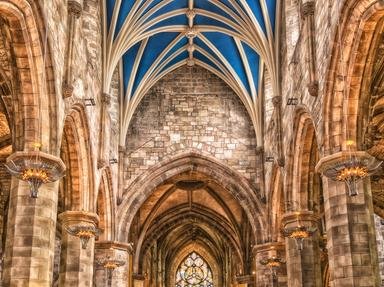Quiz Answer Key and Fun Facts
1. We start our tour in the best-known city of ancient Greece. On a prominent hill in the city centre you see a famous temple that honours which maiden goddess?
2. Staying in Athens you find a splendidly preserved temple in the agora (central marketplace) that is commonly called "The Theseion" ("Temple of Theseus"). But your guide says that it was more likely dedicated to honour which lame Olympian god?
3. Your guide takes you on a tour around Attica, the region of which Athens is the central city. About a dozen miles NW of the city you reach Eleusis, where mystery rites were celebrated in honour of which Olympian deity?
4. You are lucky that your guide takes you on a back road to a sanctuary at Rhamnous overlooking the Strait of Euboea. Here you see a temple honouring which goddess who presides over making things even?
5. Finally you reach the southern tip of Attica, where an impressive temple stands overlooking the sea. Appropriately it honours which god?
6. Back in Athens your guide takes you across the Isthmus of Corinth into the Peloponnese. Your first stop is the much visited shrine at Epidaurus, most famous for a very well preserved theatre. But the sanctuary as a whole is dedicated to which god, known for his healing powers?
7. Your move on farther to the Argive plain and the famous sites at Mycenae, Tiryns and Argos. What matronly goddess was especially worshipped at Argos?
8. On your way out of the Peloponnese your guide takes you on a short detour to a splendid site at Nemea, where Heracles killed the Nemean Lion as the first of his Labours and then founded the Nemean games to honour what Greek god?
9. It would not be a trip to Greece without crossing the Aegean Sea. Your guide has you stop at the small shining island of Delos, where what Greek god was said to have been born?
10. You finish your trip on the west coast of Asia Minor (modern Turkey) in the impressive ruins of Ephesus. One of the seven ancient wonders of the world was built there, a temple in honour of which maiden deity?
Source: Author
Ampelos
This quiz was reviewed by FunTrivia editor
stedman before going online.
Any errors found in FunTrivia content are routinely corrected through our feedback system.


